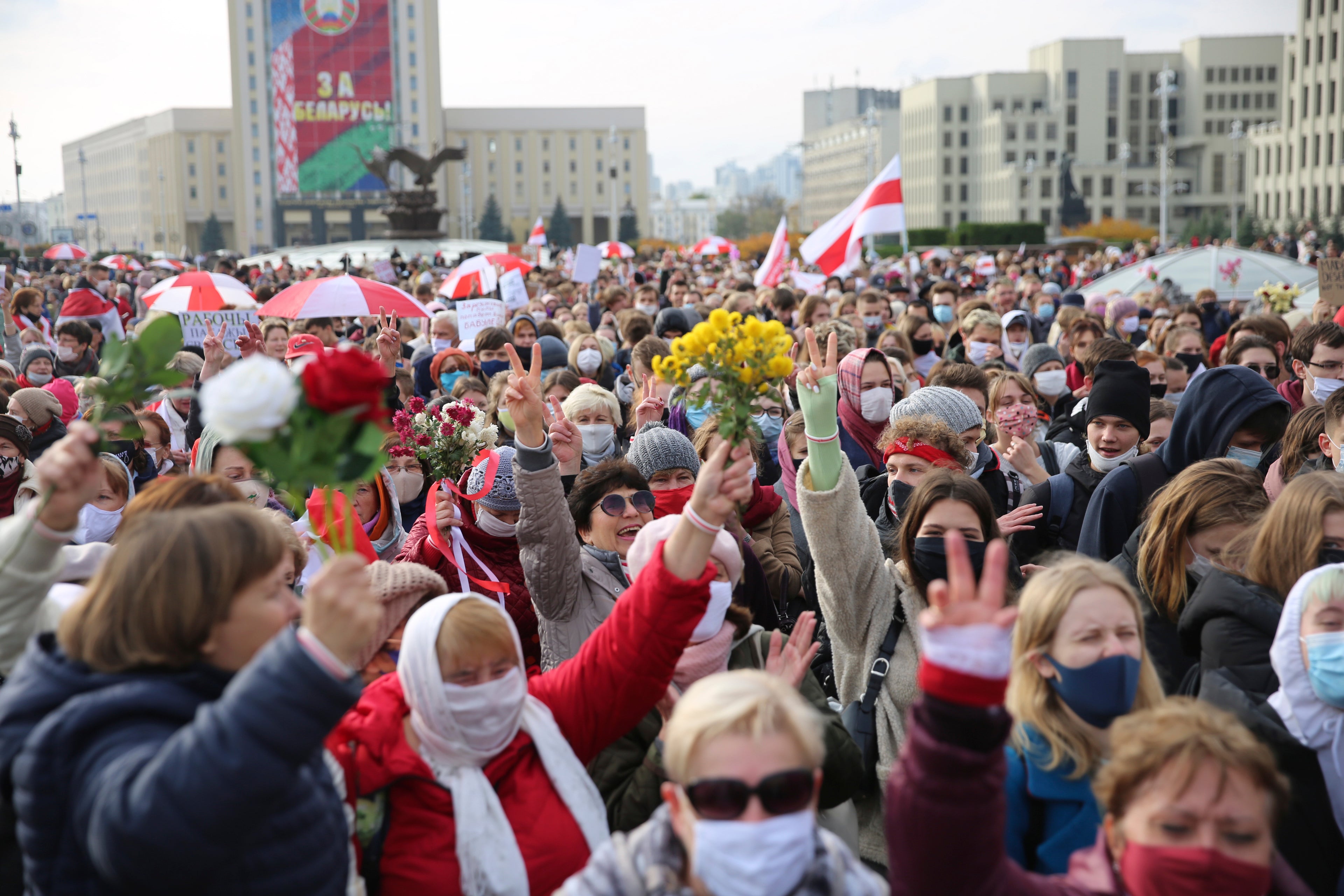Lukashenko arrests doctors and threatens students with military service on second day of strike
Belarus president said his opponents had ‘crossed a red line’

Your support helps us to tell the story
From reproductive rights to climate change to Big Tech, The Independent is on the ground when the story is developing. Whether it's investigating the financials of Elon Musk's pro-Trump PAC or producing our latest documentary, 'The A Word', which shines a light on the American women fighting for reproductive rights, we know how important it is to parse out the facts from the messaging.
At such a critical moment in US history, we need reporters on the ground. Your donation allows us to keep sending journalists to speak to both sides of the story.
The Independent is trusted by Americans across the entire political spectrum. And unlike many other quality news outlets, we choose not to lock Americans out of our reporting and analysis with paywalls. We believe quality journalism should be available to everyone, paid for by those who can afford it.
Your support makes all the difference.First came the detentions of cardiology specialists, dragged from protests outside their hospitals and forced to postpone planned operations. Then, an official threat to exclude and conscript any students who dared to take part in protests.
Events on Tuesday failed to shift the fundamentals of a confrontation between a dictator and his people. For a second day, a national strike movement failed to reach critical mass, but moments of drama like these underlined the seriousness of the predicament in which the president, Alexander Lukashenko, now finds himself.
In a televised meeting with advisers, an obviously irritated Mr Lukashenko declared that his opponents had “crossed a red line”. The country was already “seven or eight steps” into a revolution, he said. “Don’t try to persuade anyone — not workers, not students, doctors, teachers or government officials ... Let them decide now where and how they want to live.”
Oleg Polonetsky, one of the eleven cardiology specialists detained just before 8am (5am GMT), agreed that he had made up his mind about what was happening. But the decision to join the protest, he said, was “agonising”. Like many across the country, he was worried about the consequences.
“I’m very disappointed, very saddened by what is happening, and of course our profession saw the excesses first-hand,” he said. “I want to wake up and discover that this is all a terrible dream.”
The heart surgeon was the first to be released after spending two and half hours in police custody. He was eventually able to complete most of the surgery scheduled for that day, he said, and also to participate in a conference with Russian colleagues. Fearful of repercussions for his patients and institution, he said that he planned to stay away from future strikes and protests.
Fear and intimidation continue to be the main barriers to the opposition strike actions taking off in a big way. As on Monday, nearly all major state enterprises continued to function as normal, with only a small percentage of workers publicly answering the call to walk out. At Belorusneft, the state oil company, six workers were fired after releasing a video in support of the strikes.
One major exception was Grodno Azot, a manufacturer of nitrogen compounds and fertilisers in the west of the country. There, several workshops reportedly stopped working amid mass walkouts. Unlike on Monday, authorities did not step in to arrest workers. Instead, managers offered bonuses — suggesting, perhaps, that they were struggling to persuade workers to return.
The student population was another major strike stronghold, with most schools and universities across Belarus holding some kind of sit-in protests. It is not entirely clear what levers they have over the system, but Mr Lukashenko seemed particularly irked by their betrayal. He called on parents to keep their children away from protests, “before it hurts”.
“Any student who joins an unsanctioned protest action loses the right to be a student,” he said. “Turn them over to the army. Turn them out onto the streets … The same goes for their teachers who are behaving so despicably.”
It remains to be seen whether the embattled autocrat will follow through on the threats, said Artyom Shraibman, a political commentator in Minsk. Mr Lukashenko’s rhetoric often departed from reality.
“If we start to see real, mass exclusions then yes, it has the potential to become a serious factor,” Mr Shraibman said. “The effect will likely go two ways — with some people frightened, and others angered into action.”
The opposition’s high-risk strategy of issuing a strike ultimatum could be interpreted along similar lines. On the one hand, strikes are yet to reach a critical level that would seriously jeopardise national finances; on the other, they have instilled a level of enthusiasm into the protest movement.
The estimated number of protesters – between 100,000 and 200,000 – to have turned out in Minsk on Sunday was much higher than in previous weeks.
Whether the strike movement is able to grow further will depend on whether new protest triggers appear along the way, said Mr Shraibman: “So far, the Belarusian authorities have shown they are more than capable of creating them.”
Subscribe to Independent Premium to bookmark this article
Want to bookmark your favourite articles and stories to read or reference later? Start your Independent Premium subscription today.
Join our commenting forum
Join thought-provoking conversations, follow other Independent readers and see their replies
Comments